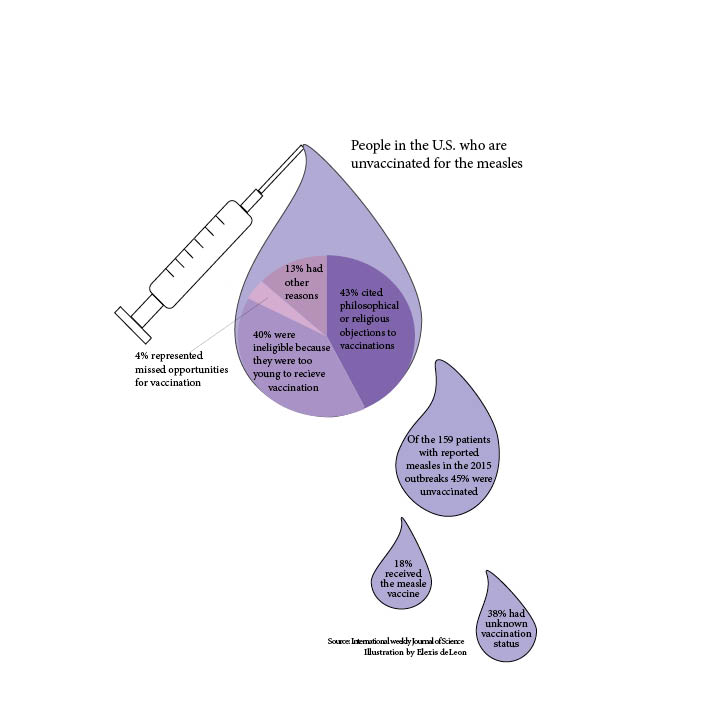The spread of measles that has been hanging over California’s shoulder for the past five months came to a close last week.
Dr. Michael Carbuto, the head physician at Student Health Services in California State University, Long Beach, said that he expects that the university will be more stringent with its students’ immunization statuses. 
“We already put a registration hold on students who aren’t up-to-date on their vaccines,” Carbuto said. “It’s more of an administration thing, but we’ll probably send out more information to persuade students to get vaccinated.”
SHS saw a similar lack of response from students during the outbreak. Carbuto said that five students came in with concerns that they had been exposed to or contracted measles, but that none of them had the disease.
“The level of concern [among students] was low because [the student who contracted measles] was such an isolated incident,” Carbuto said.
Carbuto said that the CSULB student who contracted measles had recovered and returned to school by the time the initial email notice was sent out to students in January. Kandi Dubrall, the immunization coordinator at SHS said that two students came in to receive measles, mumps and rubella vaccines during the outbreak.
Some CSULB students said that they had not paid close attention to continuing news of the outbreak.
“Obviously, [people should get vaccinated] if they like not dying,” senior psychology major Jasmine Ang said.
According to a press release for the CDPH announcement, a total of 131 cases linked to the outbreak were reported among California residents.
The outbreak began with 42 cases directly linked to an initial exposure at Disneyland and spread further through secondary cases. Cases were identified by the genotype of the virus, which was designated as the B3 strain. According to a CDPH surveillance update, 57 of the 82 cases who had vaccination records were unvaccinated and 25 were either partially or completely vaccinated.
According to the CDPH press release, two doses of the MMR vaccine produce immunity in more than 97 percent of patients.
“We have a vaccine that is highly effective and widely available,” said Dr. Gilberto Chavez, the deputy director of the CDPH Center for Infectious Diseases. “So measles and these types of measles complications should really not occur in this day and age.”
According to vaccines.gov, the MMR vaccine and others like it work even without 100 percent effectiveness because of herd immunity, which means that outbreaks of contagious diseases are effectively contained by the scarcity of eligible hosts. Chavez said during a teleconference that the measles outbreak spread quickly because of concentrated populations of unvaccinated people.
“We have a particular responsibility to protect all of our infants in the state until they are old enough to be vaccinated,” Chavez said.Elexis deLeon Bryant




